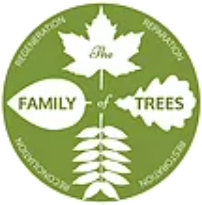Adapted from Vegan Cooking on a Shoestring Budget, By Lylee Heart
From grocery stores and dumpsters, to foraging and volunteering, there are many ways to get free, cheap and healthy food in the Twin Cities. The options are as limitless and expansive as your own creativity. Here are some ideas to get you started:
- Ethnic grocery stores are usually cheaper than standard grocery stores. Check out the huge selection at United Noodle in the Seward Neighborhood in Minneapolis. (unitednoodles.com)
- Volunteering is a great way to get free food in exchange for some of your time.
- Sisters Camelot distributes free and organic overstocked veggies from their beautiful bus. So, hop on the bus, help out, and get free food! (sisterscamelot.org)
- Many local nonprofits will feed you after you’ve worked a shift for them. Check out Open Arms of Minnesota where meals are cooked for people with AIDS, HIV, and terminal cancers. (openarmsmn.org)
- Minneapolis Food Not Bombs cooks three free meals a week. Go help cook, and eat too! (myspace.com/minneapolisfnb)
- Many stores have a 1234 bin, or the bin where they put slightly damaged produce that needs a good home. The Seward Co-op has a 1234 bin, and the Produce Exchange inside the Midtown Global Market has a “sale rack.” (midtownproduceexchange.com)
- Farmers markets are available throughout the Twin Cities area. If you go toward the end of the day you can usually get cheaper bulk amounts of whatever is in season—as they would rather give it away at a discount than transport all the food back home with them. For a list of farmers markets in your area, visit localharvest.org.
- Grow your own veggies both indoors and outdoors! Once harvest time arrives, you can use your bounty for canning, freezing, eating, and sharing. Visit gardeningmatters.org for more information.
- Though kind of pricy upfront, joining a Community Supported Agriculture (CSA) group is worth the investment. Farmers get money upfront, which allows them to produce and deliver fresh veggies to you once a week. Consider sharing a CSA share with friends to split the cost and the veggies! For a CSA guide, go to landstewardshipproject
.org/csa.html - Buy in Bulk! Bulk food is generally cheaper than prepackaged foods and cuts down on packaging waste.
- There are lots of ways to save and reuse food as you cook. For example, freeze parts of veggies you would normally discard (like the ends of carrots) in a bag. When your bag is full, throw the contents in a pot with some water, bring to a boil, simmer for about an hour, and you’ve got fresh veggie stock!
Cheap Food Guide







